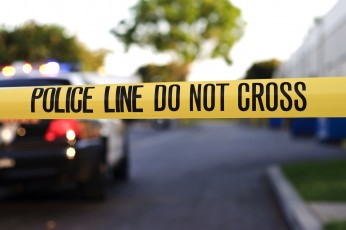



A Baltimore program that assigns detectives to work in neighborhoods at high risk for gun violence was more effective at reducing gun violence in Baltimore than other initiatives, a recently released study by researchers at the Johns Hopkins Bloomberg School of Public Health concludes. The study also found that sharp increases in arrests for drug sales in an area tended to lead to more shootings over the following nine months. However, major operations against drug-selling groups driving violence reduced shootings for six months.
These findings are part of a new report, “Estimating the Effects of Law Enforcement and Public Health Interventions Intended to Reduce Gun Violence in Baltimore,” from the Johns Hopkins Center for Gun Policy and Research funded by the Abell Foundation and the Annie E. Casey Foundation. The report analyzes data from 2003 through 2017 to estimate the effects of law enforcement and public health interventions designed to reduce gun violence within high-crime areas in Baltimore.
The report found that the hot spot program focused on guns, which is run by the Baltimore Police Department’s Violent Crime Impact Section (VCIS), led to a 12 to 13 percent reduction in homicides and 18 to 20 percent fewer shooting in areas where it was implemented between 2007 and 2012. Somewhat similar efforts were mounted in 2013 but were not linked with reductions in gun violence. However, while successful in reducing gun violence, the behavior of some VCIS officers generated complaints of abuse and costly lawsuits for the City.
“The reductions in shootings connected with Baltimore’s VCIS are consistent with the experiences of other cities that have used specialized police units targeting illegal gun possession in areas with the highest rates of shootings,” says Daniel Webster, ScD, MPH, director of the Johns Hopkins Center for Gun Policy and Research at the Bloomberg School and the study’s lead author. “But it is important for these programs to be carried out in a manner that is legally justified, professional, and acceptable to the communities they serve with appropriate accountability.”
Baltimore has long been plagued by high rates of homicide, with guns playing an important role. The City has implemented a number of law enforcement and public health strategies designed to reduce shootings. In addition to hot spot policing targeting illegal guns, the report examined:
For their study, the researchers used data obtained from the Baltimore Police Department, Open Baltimore, a citywide public information database, and the Baltimore Health Department. Major drug busts were identified by systematic searches of news stories from local media outlets including the Baltimore Sun to estimate each intervention’s effects.